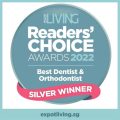Children's Dentistry
Caring for the ones you love most
When to first take a child to the dentist is a very common question amongst parents. It might seem like a very young age but certainly by two years of age all children should have been to the dentist at least once. Ideally the first visit does not reveal any concerns, though it is not uncommon, but is aimed at introducing each toddler to the dental environment with a fun and pleasant experience. As a parent, this is also a great opportunity to clarify any unanswered questions you may have about looking after your child’s teeth. Visits every 6 months should continue after the initial visit. At each appointment, we try to introduce something new so your toddler is completely comfortable getting a comprehensive exam and a cleaning done.
Regular oral hygiene should start early in your child’s life. Babies’ first teeth appear around the age of 6 months. Even before baby teeth are present, a soft cloth should be used to gently rub a baby’s gums clean twice a day. As soon as the first tooth can be seen it is time for brushing, using a soft toothbrush to massage the teeth and the surrounding gums. A small amount of toothpaste can be introduced around 18 months of age. All the baby teeth are in place between two and three years old, and flossing needs to be introduced to prevent cavities between tightly packed baby molars. Your dentist can provide you with some ideas on how to make this an easy process at your baby’s first dental visit, recommended at the age of two.
Introducing an oral hygiene routine and friendly dentist visits early in life allow toddlers to develop an understanding of the importance of looking after teeth in a low stress environment. It is normal to face resistance and using creative ideas like brushing to a song or a game can often help. Parental brushing supervision is recommended until about eight to ten years of age. At expatdental®, our oral hygienists can help educate and encourage your child about their teeth and care. We recommend bringing your toddler for a ride on the “big chair” as their first visit and introduction to the dentist. This helps to alleviate anxiety and encourages a positive familiar relationship with the dentist and hygienist.
As young people move towards independence and adulthood, teenagers need a full understanding of the value of oral hygiene practices so that they can take responsibility for their dental health. This is especially important if they are treated with orthodontics. During orthodontics oral hygiene practices become more difficult.
Our dentists will be able to show you exactly how to keep both your braces and your teeth clean. Flossing twice daily and extended brushing with a soft toothbrush is essential to avoid any unnecessary damage to the teeth resulting from retained plaque on and around orthodontic devices. Specially designed floss and toothbrushes are available for those hard to reach places. Remember to continue seeing your general dentist and hygienist every six months despite having regular orthodontic visits.
FAQs
Children’s dental care helps your child develop good oral habits from an early age. We recommended children begin visiting the dentist at the age of 2. It is important to ‘role-model’ good oral care habits by allowing your children to see that you visit the dentist regularly and view the visits as a positive experience.
All children should visit the dentist every six months. This will help your child to become accustomed to a regular dental routine where they can be educated about taking responsibility for their dental health and the dental professional can monitor any changes or concerns.
At two years of age many baby teeth are already present. Your dentist will gently try to have a look at all of these teeth and make sure there is no early reason for concern. It will also be an opportunity to answer any question you as a parent may have regarding dietary and oral hygiene habits. Your dentist will also take some time to introduce your toddler to a few of the components of the dental chair. We call it a ‘ride on the big chair’
When used properly great results can be achieved with both electric and manual toothbrushes. However cleaning well with an electric toothbrush is easier and can help prevent harsh brushing that may damage teeth and gums. Electric toothbrushes are also a great aid when trying to encourage children to brush their teeth well.
Yes. Like adult teeth, baby teeth can often be positioned close to one another causing plaque accumulation in between which can lead to cavities. It is also beneficial to introduce flossing habits early on and encourage it to become a habit.
Your dentist may recommend sealants at any point of your child’s dental development. Sealants are a non-invasive method to protect teeth which may be prone to cavity formation. This can be due to poor enamel quality or deep grooves on teeth. Several material options are available and your dentist will select the correct option for the particular scenario.

Service Warranty
Keep up on your regular routine cleanings and if something breaks, we’ll fix it at no cost. Learn more

Transparent pricing
You will have the full breakdown of any treatments and pricing upfront so there are no surprises.

Internationally certified
Our dental team comes from the US, UK, Canada and Singapore, and have served more than 11,000 patients!

Novena Medical Center
- 10 Sinaran Drive, Unit 08-15/16, Novena Medical Center, Singapore 307506
- +65 6397 6718
- Monday
- 9am – 5pm
- Tuesday
- 9am – 5pm
- Wednesday
- 9am – 5pm
- Thursday
- 9am – 5pm
- Friday
- 9am – 5pm
- Saturday
- 9am – 5pm
- Sunday & Public Holidays
- Closed
Our staff will be in touch within 24 hours or our next business day.


